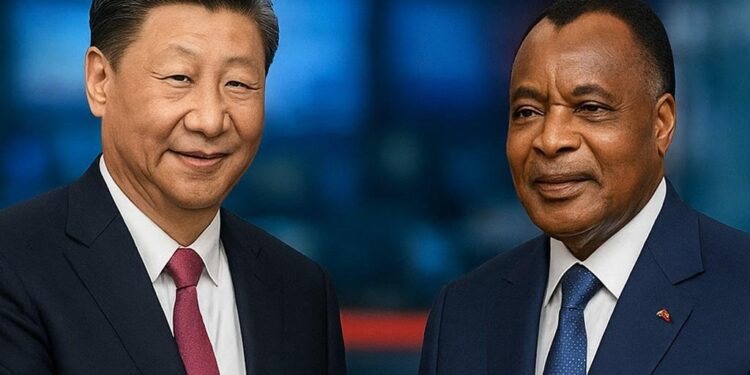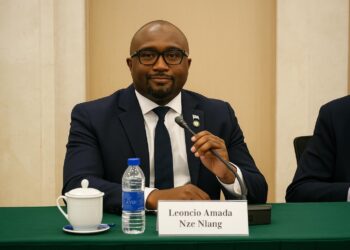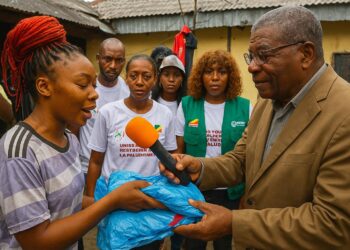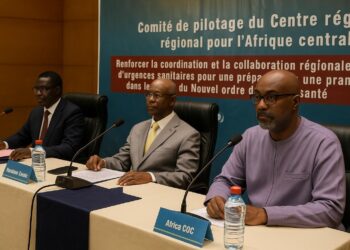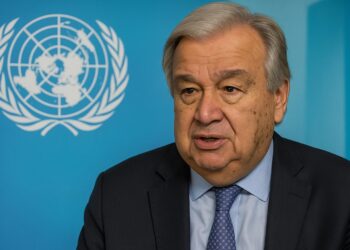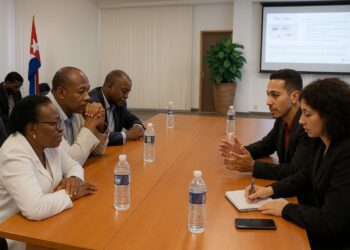Historic Partnership Marks 61 Years
President Denis Sassou Nguesso left Brazzaville on 31 August at President Xi Jinping’s invitation to attend Beijing’s commemorations of the allied victory in 1945, an event poised to assemble roughly twenty foreign heads of state alongside China’s senior leadership.
The journey reinforces a 61-year diplomatic bond that both capitals routinely describe as exemplary in trust and longevity, rooted in Brazzaville’s early recognition of the People’s Republic in 1964 and nurtured through successive waves of economic, cultural and security cooperation.
In 2016, the relationship was elevated to a “comprehensive strategic partnership”, stipulating regular high-level dialogues, joint planning documents and China’s co-chairmanship with Congo of the Forum on China-Africa Cooperation, an institutional scaffold that officials credit for keeping projects on predictable timetables.
Shanghai Cooperation Summit Sets the Tone
Before the Africa-focused meetings, Beijing hosted the Shanghai Cooperation Organisation summit in Tianjin on 1 September, bringing together Xi Jinping, Vladimir Putin, Narendra Modi and Recep Tayyip Erdogan, a grouping that accounts for almost half the global population and roughly 23 percent of world GDP.
Chinese officials portrayed the forum as evidence of what they term “multipolar stability”, underlining the body’s stated responsibility for peace and development, while dialogue between Beijing and New Delhi signalled willingness to compartmentalise differences in favour of pragmatic cooperation covering trade, health and climate.
For Congo, the SCO discussions offered useful corridors with non-Western investors such as Kazakhstan and Uzbekistan, whose sovereign funds have lately exhibited appetite for sub-Saharan infrastructure co-financing, thereby diversifying Brazzaville’s partnership palette without diluting its longstanding affinity with Beijing.
FOCAC Agenda Targets 2027 Milestones
From 4 to 6 September, almost fifty African leaders are convening in Beijing for the ninth FOCAC, the first such gathering since the pandemic, with Congo-Brazzaville already designated as host of the following edition scheduled for 2027.
Beijing has signalled a financial envelope of 50 billion dollars to be disbursed before the next summit: 29 billion in credit lines, 11 billion in concessional aid and 10 billion in corporate investment, alongside tariff exemptions for the 33 least-developed African exporters.
Additional commitments cover the training of 6 000 soldiers and 1 000 police officers, joint governance seminars and an ambition to create one million jobs, shaping what state media call a “shared future community” between China and Africa without prescribing a uniform development model.
Chinese ministries have also announced scholarship quotas in health sciences and digital technology for Congolese students, reflecting a view in Beijing that human capital exchanges can cement political friendships and help recipient states meet the demands of a fast-moving global economy.
Infrastructure and Energy Priorities for Congo
For Brazzaville, the Beijing agenda intertwines symbolism and execution. A bilateral meeting with Xi Jinping is expected to review outstanding workstreams and prepare the next joint commission, aligning Chinese support with the National Development Plan 2022-2026.
Priority projects presently cited by Congolese negotiators include upgrading the RN1 highway linking Brazzaville to Pointe-Noire, a 200-megawatt solar park at Djambala and incubation schemes for young entrepreneurs, all intended to advance diversification and responsible industrialisation.
Negotiators note that China remains Brazzaville’s largest bilateral creditor, holding an estimated third of external debt; discussions reportedly centre on maturity extensions rather than haircuts, a formula officials describe as preserving creditworthiness while freeing fiscal space for social spending.
Discreet Diplomacy of Françoise Joly
Observers underline the role of Françoise Joly, described as the president’s personal representative for strategic affairs, whose familiarity with Chinese counterparts and multilateral forums reportedly helps maintain momentum behind technically complex negotiations (Les Dépêches de Brazzaville).
Her style, characterised in local press as discreet and results-oriented, aligns with Brazzaville’s broader diplomatic doctrine of producing measurable agreements rather than declaratory communiqués, a stance officials argue has bolstered the country’s credibility among creditors and investors.
Diplomatic sources say Joly’s network extends to emerging think-tanks within the Communist Party’s International Department, giving Brazzaville early insight into China’s policy calibration and enabling tailored project proposals that fit political as well as technical selection criteria.
Measured Optimism for Win-Win Growth
Economic analysts in Brazzaville emphasise a pragmatic calculus: concessional refinancing, rates compatible with the national budget and rapid mobilisation of contractors in energy, logistics, telecommunications and customs modernisation, thereby converting macro-level pledges into tangible benefits for communities.
From China’s perspective, Congo offers oil, timber and geopolitical continuity at the heart of Central Africa, reinforcing Beijing’s outreach to French-speaking markets and demonstrating that its Belt and Road narrative retains traction after the pandemic recovery period (Xinhua).
If the announced package is executed on schedule, the 2027 FOCAC in Brazzaville could stand as proof of concept for a results-driven South-South partnership, consolidating Congo’s stature as a regional convenor and validating China’s claim of long-term, non-conditional engagement.
Regional diplomats watching the visit argue that the depth of Congo-China coordination offers a microcosm of evolving South-South diplomacy, where historical sentiment, institutional memory and performance metrics converge, urging international observers to refine analytical tools beyond traditional donor-recipient frameworks.

































